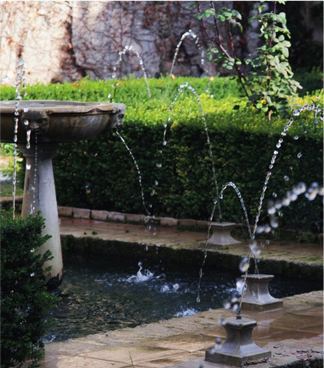Oct . 07, 2024 13:34 Back to list
submersible pump for fountain
Submersible Pumps for Fountains A Deep Dive into Their Benefits and Applications
Fountains have captivated humanity for centuries, providing not only aesthetic pleasure but also a soothing ambiance that enhances public spaces and private gardens alike. At the heart of every fountain lies a crucial component—the pump. Among the various types of pumps available, submersible pumps stand out as an excellent choice for fountain applications. This article explores the benefits, functionality, and considerations of using submersible pumps for fountains.
Understanding Submersible Pumps
Submersible pumps are designed to be submerged in the fluid they are pumping. This unique feature allows them to push water to the surface rather than drawing it, making them highly efficient and effective in various applications, including fountains. These pumps are typically encased in a waterproof housing that protects the motor from water damage and helps prevent electrical hazards.
Benefits of Submersible Pumps for Fountains
1. Efficiency and Performance Submersible pumps are renowned for their efficiency. By being submerged, they can push water upwards with less energy compared to other types of pumps, such as pedestal pumps. This characteristic results in lower energy consumption, making submersible pumps not only environmentally friendly but also cost-effective over time.
2. Reduced Noise Levels Unlike surface pumps that can be quite noisy, submersible pumps operate underwater, significantly reducing noise pollution. This feature is particularly advantageous in serene garden settings or tranquil public parks, where the soothing sound of flowing water is desired without the mechanical hum of a pump.
3. Versatility and Design Freedom Submersible pumps come in various sizes and capacities, making them suitable for numerous fountain designs, from small tabletop models to large, elaborate installations. Because these pumps can be placed beneath the water's surface, they do not interfere with the aesthetic appeal of the fountain, allowing for greater design freedom.
4. Improved Durability Submersible pumps are generally more robust than their surface counterparts. They are built to withstand the harsh conditions associated with being submerged in water, including temperature variations and debris. Many submersible pumps come with additional protective features such as thermal overload protection to enhance their lifespan.
submersible pump for fountain

5. Lower Maintenance Since submersible pumps are submerged, they are less exposed to environmental factors that can lead to wear and tear. This positioning reduces the frequency of required maintenance checks and allows for longer operational periods between servicing.
Applications in Fountain Design
Submersible pumps are suitable for a myriad of fountain types, each presenting unique challenges and requirements. For instance
- Garden Fountains Small to medium-sized submersible pumps can create beautiful water displays in garden fountains, providing a relaxing atmosphere for outdoor spaces. - Architectural Fountains Larger submersible pumps are often used in public plazas and parks, where they can handle the increased water volume while delivering impressive water effects, such as jets and cascading waterfalls. - Indoor Fountains Submersible pumps are ideal for indoor fountain designs, where the noise and aesthetic considerations are pivotal. Their quiet operation ensures that indoor environments remain peaceful while allowing for stunning water features.
Key Considerations When Choosing a Submersible Pump
When selecting a submersible pump for a fountain, several key factors should be considered
- Pump Capacity Proper sizing is crucial. The pump must be capable of moving the required volume of water based on the fountain's design. - Material and Build Quality Look for pumps constructed from durable materials that resist corrosion and wear, especially for outdoor applications. - Power Source Consider how the pump will be powered. Electric pumps are common, but solar-powered options are available for eco-friendly setups. - Flow Rate and Head Height Ensure that the chosen pump can achieve the desired flow rate and head height to create the intended water effect.
Conclusion
Submersible pumps are an integral element in many fountain designs, offering numerous advantages over other types of pumps. Their efficiency, reduced noise levels, versatility, and durability make them a preferred choice for both residential and commercial fountain applications. As water features continue to play a vital role in enhancing our environments, understanding the benefits and applications of submersible pumps can help ensure successful installations that delight and inspire all who encounter them.
-
Submersible Water Pump: The Efficient 'Power Pioneer' of the Underwater World
NewsJul.01,2025
-
Submersible Pond Pump: The Hidden Guardian of Water Landscape Ecology
NewsJul.01,2025
-
Stainless Well Pump: A Reliable and Durable Pumping Main Force
NewsJul.01,2025
-
Stainless Steel Submersible Pump: An Efficient and Versatile Tool for Underwater Operations
NewsJul.01,2025
-
Deep Well Submersible Pump: An Efficient 'Sucker' of Groundwater Sources
NewsJul.01,2025
-
Deep Water Well Pump: An Efficient 'Sucker' of Groundwater Sources
NewsJul.01,2025
-
 Submersible Water Pump: The Efficient 'Power Pioneer' of the Underwater WorldIn the field of hydraulic equipment, the Submersible Water Pump has become the core equipment for underwater operations and water resource transportation due to its unique design and excellent performance.Detail
Submersible Water Pump: The Efficient 'Power Pioneer' of the Underwater WorldIn the field of hydraulic equipment, the Submersible Water Pump has become the core equipment for underwater operations and water resource transportation due to its unique design and excellent performance.Detail -
 Submersible Pond Pump: The Hidden Guardian of Water Landscape EcologyIn courtyard landscapes, ecological ponds, and even small-scale water conservancy projects, there is a silent yet indispensable equipment - the Submersible Pond Pump.Detail
Submersible Pond Pump: The Hidden Guardian of Water Landscape EcologyIn courtyard landscapes, ecological ponds, and even small-scale water conservancy projects, there is a silent yet indispensable equipment - the Submersible Pond Pump.Detail -
 Stainless Well Pump: A Reliable and Durable Pumping Main ForceIn the field of water resource transportation, Stainless Well Pump has become the core equipment for various pumping scenarios with its excellent performance and reliable quality.Detail
Stainless Well Pump: A Reliable and Durable Pumping Main ForceIn the field of water resource transportation, Stainless Well Pump has become the core equipment for various pumping scenarios with its excellent performance and reliable quality.Detail
